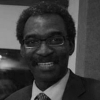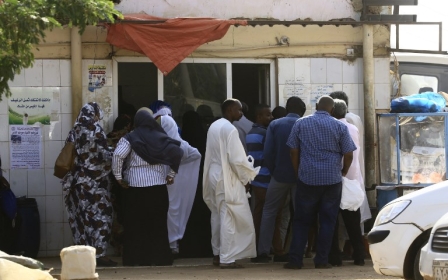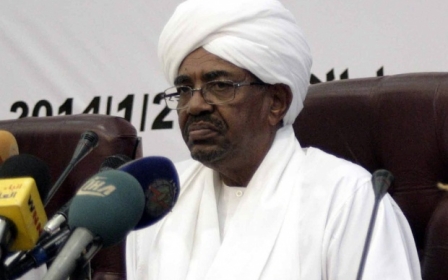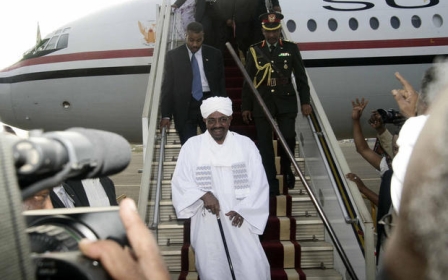Sudan’s new government: Can Bashir make a breakthrough in Sudan’s endless crisis?
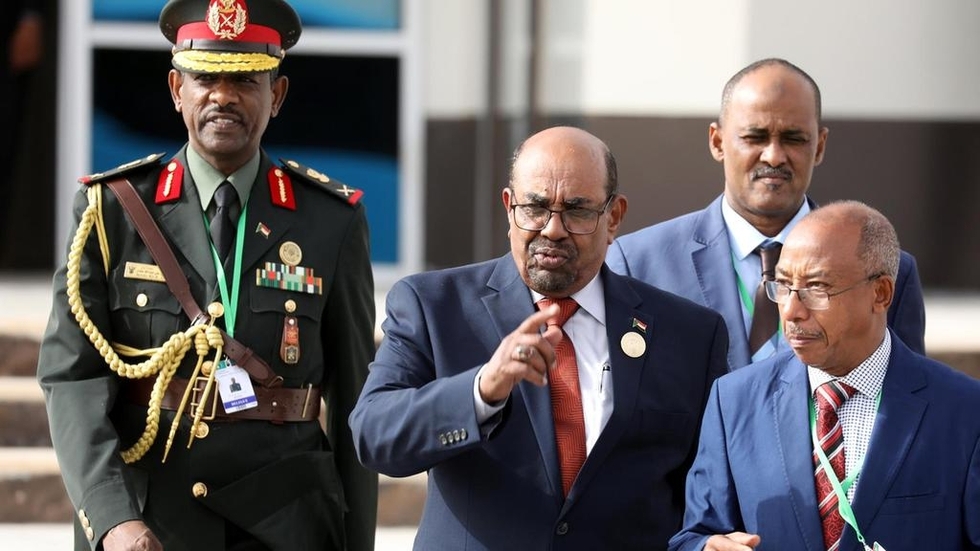
Sudanese President Omar Bashir's surprise move to dissolve his government appears to be a response to the grave economic challenges facing the regime. However there are other reasons for the move, mainly concerning his re-election in 2020.
In this regard, Bashir is also trying to buy time by shuffling the deckchairs in front of a public bewildered by his multiple failures. So far, there is no indication that there is a light at the end of the tunnel for Sudan’s long-suffering people.
While the Sudanese people are exhausted by empty political promises of government reform, the reaction to the decision among the major opposition parties is one of mockery
Bashir’s new government will make no difference at a time when the regime suffers from regional and international isolation. While the Sudanese people are exhausted by empty political promises of government reform, the reaction to the decision among the major opposition parties is one of mockery.
Besides, the outstanding arrest warrants from the International Criminal Court, which has indicted Bashir, have made it difficult for his regime to gain valuable economic assistance from the international community.
Accordingly, the new cabinet is no more than the bitter result of this ICC hurdle that has so damaged Sudan’s economic and political relations with international donors, particularly the West.
Serial failure
Since he took power through a military coup in 1989, Bashir has failed in seeing through to completion any of his flagship government projects.
Ironically, he has discovered only now that a small cabinet is the best way to achieve national progress, ranging from stopping the current civil war, to helping the economy to recover after the secession of South Sudan, to stopping the migration of millions of Sudanese abroad and to increasing agricultural and industrial production.
In fact, the common element in all these issues is the lack of solution to the historic crises of national governance, which has made the country unstable politically since its independence in 1956.
The number of ministries will be slashed to 21 from 31, a move intended to cut down on spending, National Congress Party Deputy Chairman Faisal Hassan told a news conference this week. On Monday, Bashir announced that government spending would be slashed by 34 percent, a massive cut brought on by Sudan’s economic crisis.
This drastic belt-tightening marks a major shift. Previously, in response to the demands of signatories to peace agreements with his governments, Bashir relentlessly expanded political employment at the federal and state level.
Although this clientist jobs creation scheme has allowed the regime to maintain its political and social base in the short term, over time it has depleted the country’s treasury. The misallocation of resources has also contributed to the bread shortage, the difficulty of obtaining hard currency and the fuel crisis.
New faces
Three of the new faces in Bashir’s slimmed down cabinet are close relatives and supporters of his candidacy for the upcoming presidential election. However, they do not represent the old guard of the Sudanese Islamic Movement (SIM), the umbrella organisation of the Muslim Brotherhood in Sudan that planned Bashir's seizure of power in 1989, nor are they part of the rival factions within the governing National Congress Party (NCP).
But despite this overhaul, the new cabinet is unlikely to make a breakthrough in the issues related to domestic and foreign policy, the economy, or achieving national consensus.
The real dilemma for Sudan is Bashir himself, rather than the inability of ministers in the last government to achieve its policy goals.
Announcing the changes, Bashir adopted an unusually reflective tone. "This step is necessary to address the situation of distress and frustration the country has faced during the last period," he said. This is probably the first time he has acknowledged his government’s failures. For many years Bashir has been trying to hold outsiders responsible, arguing that the orientation of his Islamic regime is the reason for the systematic targeting of Sudan by world powers.
The truth is that Bashir, whenever he feels the proliferation of challenges around him, seeks to engage his people with such paradoxical policies. His latest move works within the framework of this deceptive strategy, which is in the tradition of the political experimentation that he has used to maintain his strong grip on power.
"Every government is preceded by promises of reform, attention to people's pensions, rationalization of spending, fighting corruption and other promises, and then the result is its failure," said Omar Eldeger, the leader of the Sudanese Congress Party (SCP).
For Sudan to overcome its economic obstacles, it requires a fundamental change that Bashir does not have the stomach for. It is a crisis of governance before it is an economic one.
Despotism and corruption
The SIM regime which has maintained power through military despotism, has failed for three decades to present a model of harmony between religion and state. On the one hand, the Sudanese Islamists oversaw the worst forms of governance that led to the secession of the south, the Darfur crisis and the escalation of the conflict in South Kordofan and Blue Nile.
On the other hand, corruption in all state facilities led to the collapse of all agricultural and industrial projects, and the decline in offering essential public services for the Sudanese population.
The new government is not qualified to deal with the crises facing the country, and will fail just like the one dissolved by President Omar al-Bashir two days ago
Al-Sadiq al-Mahdi, the chairman of the opposition Sudan Call
"The new government is not qualified to deal with the crises facing the country, and will fail just like the one dissolved by President Omar al-Bashir two days ago," said al-Sadiq al-Mahdi, the chairman of the Sudan Call, an alliance including the political and armed opposition.
There is no indications that Bashir is going to listen to al-Mahdi’s critiques to his regime or repeated calls by him to “resolve the crises of the country by returning to the African road map signed by the regime and the opposition and forming a transitional government that achieves a comprehensive peace and democratic transition,” as al-Mahdi said in a statement following Bashir’s move to dissolve the government.
The good news is that the new prime minister, Mutaz Musa Abdalla, said in his first statement that the implementation of his programmes "will be a partnership between the government and society ... In this context, we will listen to scientists, experts, opinion leaders, the private sector, women and youth to make a successful partnership between society and the state."
Of course, this was not the first such promise made by a high-ranking official. But we will wait to see if this partnership materialises, especially since Sudan needs a national political consensus and reliance on concrete action for reform, not radical ideology.
- Salah Shuaib is a Sudanese journalist who has been in the media field for more than three decades in Sudan, Egypt and the United States, where he worked as a correspondent for major Arab newspapers and magazines. He authored two biographies about Sudanese figures and is the general secretary of the Sudanese-American Journalists Association, based in Washington.
The views expressed in this article belong to the author and do not necessarily reflect the editorial policy of Middle East Eye.
Photo: Sudan's President Omar al-Bashir walks with officials as he leaves the African Union summit in Nouakchott, Mauritania, on 2 July 2018. (Ludovic Marin / Reuters)
New MEE newsletter: Jerusalem Dispatch
Sign up to get the latest insights and analysis on Israel-Palestine, alongside Turkey Unpacked and other MEE newsletters
Middle East Eye delivers independent and unrivalled coverage and analysis of the Middle East, North Africa and beyond. To learn more about republishing this content and the associated fees, please fill out this form. More about MEE can be found here.


